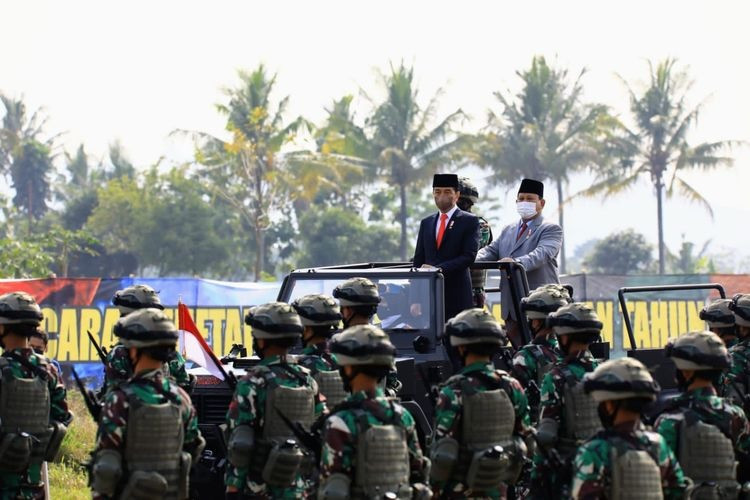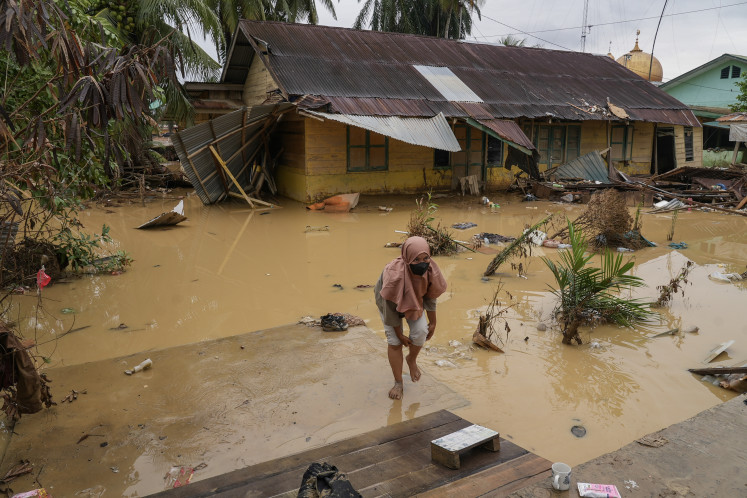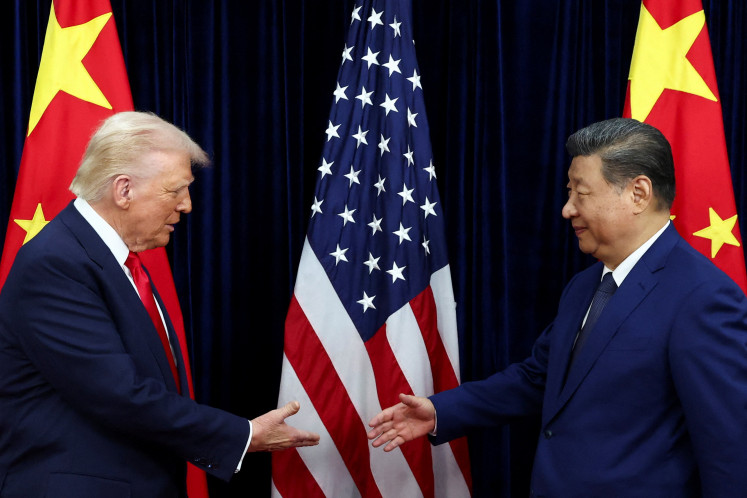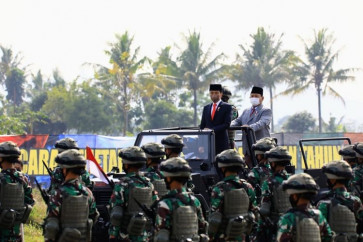Popular Reads
Top Results
Can't find what you're looking for?
View all search resultsPopular Reads
Top Results
Can't find what you're looking for?
View all search resultsTesting legitimacy of reserve component
Understanding hybrid threats as an entry point for hybrid warfare is a strategic precaution.
Change text size
Gift Premium Articles
to Anyone
 Ready to serve: President Joko “Jokowi” Widodo, accompanied by Defense Minister Prabowo Subianto, inspects the first batch of Reserve Component of the Indonesian Military (TNI) at the Special Forces Training and Education Center in Batujajar, near Bandung in West Java on Oct. 7, 2021. Jokowi also inaugurated the reserve unit. (Courtesy of /Documentary Team of the Defense Minister)
Ready to serve: President Joko “Jokowi” Widodo, accompanied by Defense Minister Prabowo Subianto, inspects the first batch of Reserve Component of the Indonesian Military (TNI) at the Special Forces Training and Education Center in Batujajar, near Bandung in West Java on Oct. 7, 2021. Jokowi also inaugurated the reserve unit. (Courtesy of /Documentary Team of the Defense Minister)
T
he constitutionality test of the provisions on the Supporting Component (Komduk), Reserve Component (Komcad) and non-human aspects in Law No. 23/2019 on national resource management for state defense (PSDN Law) is a fascinating legal phenomenon to be observed through a judicialization of politics analysis.
When analyzed using Ran Hirschl’s theory (2008), the constitutionality review filed with the Constitutional Court is a form of public support for judicial power in examining mega-political issues, especially regarding civil and military relations, and this also presents an opportunity of defense policy reformulation through the judiciary body.
The narrative then poses two reflective questions. First, what are the key messages from the judicial review of the PSDN Law? Second, what is the preference of the court justices on the petition for judicial review of the law?
The first key message concerns the total defense discourse in relation to the PSDN Law. Fundamentally, it has reopened other possible interpretations on the debate about the national defense system, namely, people’s defense and total defense.
The 1945 Constitution’s second amendment has normatively laid out the elements about the concept of people's defense and yet, it has not fully explained the normative elements and demands of total defense. This leaves much room for interpretation, which will encourage the formation of open legal policies, as seen in the PSDN Law, the Defense Law and the Defense Industry Law.
On the other hand, the provisions of Komduk and Komcad in the PSDN Law are derivatives of the total defense concept with duality characteristics; constitutional mandate and defense doctrine.
The second key message concerns the management of national resources to support national defense. What fundamentally has been missing in the public discourse is that the regulation of national resources aims to strengthen the main component and the main strength according to the Constitution, namely the Indonesian Military (TNI) as a defense tool. While philosophically, the national resource management exists as part of the gotong royong (mutual assistance) principle that reflects Pancasila.


















